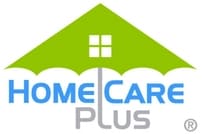With long, sunny summer days ahead of us, most people are daydreaming about the pool, the beach and barbeques, with little thought going to sun safety. May is Skin Cancer/Melanoma Detection and Prevention Month, and it couldn’t come at a better time—rates of skin cancers have increased over 300 percent since 1994! The statistics surrounding skin cancer are scary: it is the most common form of cancer in the world, it has a high recurrence rate, and those diagnosed with skin cancer are twice as likely to develop another type of cancer.
Fortunately there is good news. According to the American Cancer Association, you can lower your risk of developing skin cancer by practicing the following smart sun tips:
- Avoid direct exposure to the sun between 10 a.m. and 4 p.m. Teach children the shadow rule: if your shadow is shorter than you, the sun’s rays are at their strongest.
- Seek shade, especially in the middle of the day when the sun’s rays are strongest.
- Follow the Slip! Slop! Slap!® and Wrap! rules:
- Slip on a shirt: Cover up with protective clothing to guard as much skin as possible when you’re out in the sun. Choose comfortable clothes made of tightly woven fabrics that you can’t see through when held up to a light.
- Slop on sunscreen: Use sunscreen and lip balm with broad spectrum protection and a sun protection factor (SPF) of 30 or higher. Apply a generous amount of sunscreen (about a palmful) to unprotected skin at least 30 minutes before outdoor activities. Reapply every 2 hours and after swimming, toweling dry, or sweating.
- Slap on a hat: Cover your head with a wide-brimmed hat, shading your face, ears, and neck. If you choose a baseball cap, remember to protect your ears and neck with sunscreen.
- Wrap on sunglasses: Wear sunglasses with 100% UVA and UVB absorption to protect your eyes and the surrounding skin.
- Sunscreen doesn’t protect from all UV rays, so don’t use sunscreen as a way to stay out in the sun longer.
- Follow these practices to protect your skin even on cloudy or overcast days. UV rays travel through clouds.
- Avoid other sources of UV light. Tanning beds and sun lamps are dangerous. They damage your skin and can cause cancer.
Those with a family history of skin cancer, fair skin, blonde or red hair, past sunburns or tanning bed exposure, and a large number of moles are at greatest risk for skin cancer. Things to be on the lookout for are changes in the color or shape of a mole, tenderness/itchiness/pain, scaling or bleeding skin, a sore that doesn’t heal, and moles with irregular borders. Those with a high risk for skin cancer should visit their dermatologist on a regular basis for screenings, and everyone should do monthly self-exams at home. Skin cancer is highly treatable when it is caught early!
- Making Strides of Charleston - October 22, 2021
- Watching out for Scammers - May 5, 2021
- Sleep and Tiredness - April 13, 2021


